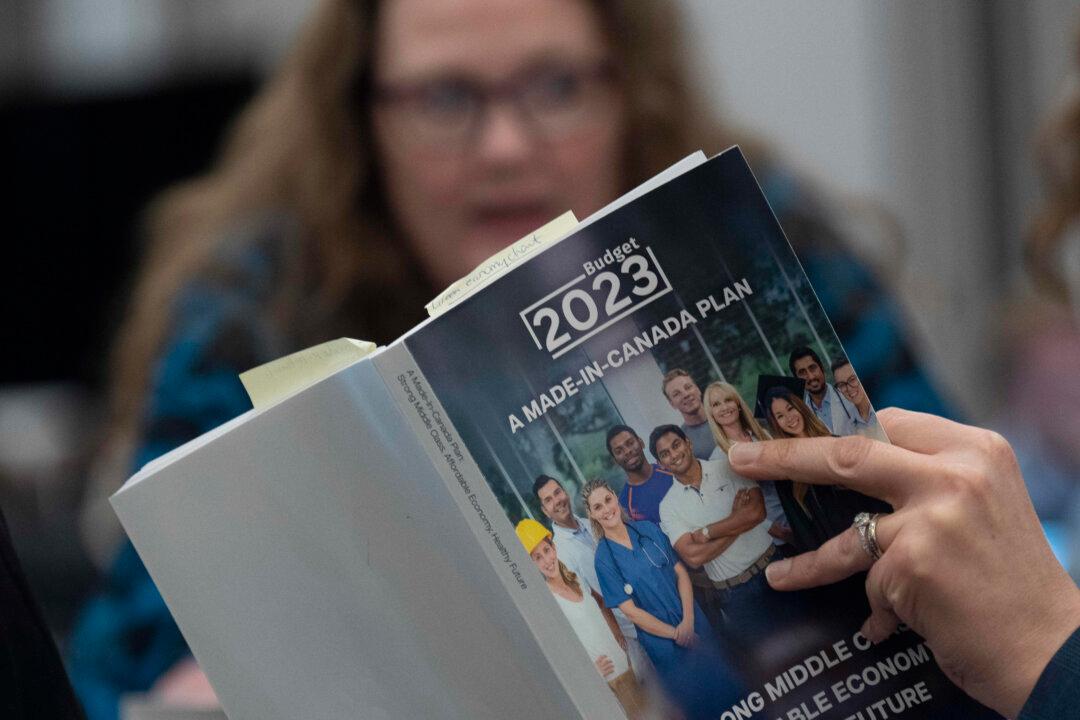A group of 60 Canadian banks has told a Senate committee they were shocked to learn the federal government’s omnibus budget bill includes a clause allowing a retroactive GST audit on credit card issuers going back 30 years.
“Retroactively taxing past transactions, especially in the face of court rulings to the contrary, erodes investor confidence in Canada, period. This is a concerning signal to investors, entrepreneurs, and business owners,” said Darren Hannah, vice president of personal and commercial banking with the Canadian Banker’s Association, which represents 60 banks.
Hannah made the comments during his appearance before the Senate national finance committee on May 17, as first reported by Blacklock’s Reporter.
“There was no communication. This is coming as a complete shock,” Hannah said, objecting to the retroactive clause.
“I have been at the Bankers Association for 23 years. I have never seen a reaction as strong, as negative, and as widespread as the reaction I have seen to this measure.”
Bill C-47, the Budget Implementation Act, revises the Excise Tax Act to levy GST on payment card network operators, and contains a clause to waive a typical four-year limit on retroactive audit, according to Blacklock’s Reporter. The clause would allow the Canada Revenue Agency to audit transactions for a back period of more than 30 years, going back to the date the Goods and Services Tax was implemented on December 17, 1990.
Hannah called on the Senate committee to amend the bill by removing the retroactive provision. He said the proposed measure “fundamentally challenges the traditional understanding of tax law,” raising questions about fairness and legal certainty, and would potentially inhibit future economic activity.
Hannah cited a recent study by RBC that indicated Canada will need an estimated $2 trillion over the next 30 years to finance the planned transition to a low-carbon economy. The banker told the Senate committee that investors will not make this type of commitment with a government that “suddenly seek[s] to retroactively revisit those conditions,” especially if businesses do not have recourse through the legal system.
‘Will Affect Any Financial Institution’
Newfoundland and Labrador Senator Elizabeth Marshall asked Hannah what the dollar value of the retroactive increase would work out to.
“The government estimate is $200 million,” said Hannah. “It will affect any financial institution frankly–bank, credit union, otherwise–that is involved in the business of credit cards.”
“That’s the dollar value on the basis of what they think the recoveries are going to be. What the actual dollar value is to Canada is a really interesting question, because what it does to investor confidence is significant. And how much that then offsets whatever gain you’re gonna get in the longer term is an open question.”
The retroactive clause will affect any merchant in Canada that requires a payment processor or that accepts credit card payments, according to Hannah.
“Frankly it will affect any business at some level that accepts payment cards because ultimately the cost will flow down to them. Increasing taxes on card issuers and acquirers will inevitably impact the cost of card acceptance for merchants,” he told the committee.
Hannah suggested the federal government was looking at the retroactive clause as “an easy fix for fiscal shortfalls.”
“Imposing such a retroactive burden undermines trust in the certainty of the tax system,” he argued.
Yukon Senator Pat Duncan said, while he didn’t expect Canadians would feel sorry for banks, he understood the banking association’s concern with retroactivity, noting it was “a key issue of this amendment.”
“I’m not an economist or learned banker. I am a former politician and I’m very familiar with knocking on people’s doors,” said Duncan. “Quite honestly I don’t know of a Canadian who is going to say the banks shouldn’t pay the government back $200 million. So what do we do with this? As a legislator, I do not know if it’s a legislative drafting error, if somehow it slipped through.”
In a separate submission to the Senate committee, the Canadian Bar Association, which represents over 37,000 lawyers, judges, teachers, and law students, said the bill would set a bad precedent in allowing tax auditors to go back through 33 years of transactions.
“Retroactive tax legislation seeks to impose taxes on transactions that have already taken place,” said the legal group in a written report. “This type of legislation is not only unfair to taxpayers but also a breach of the rule of law. We urge Parliament to amend the legislation.”





